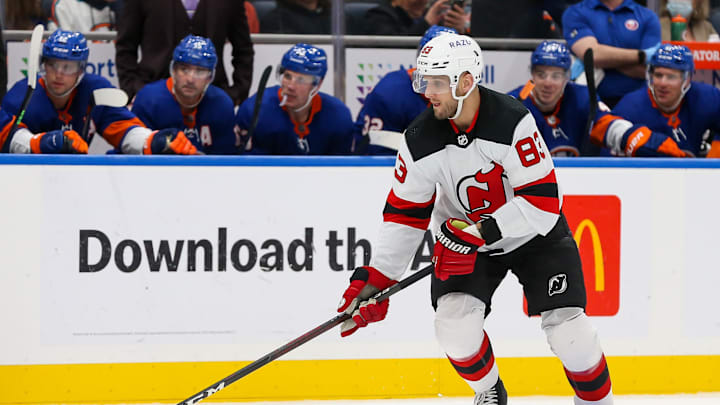On the first day of NHL free agency, Don Waddell made what was a surprising signing, bringing right-shot defenseman Christian Jaroš in on a one-year, two-way deal at league minimum ($775,000). It comes with an AHL/minor league salary of $300,000 (40%), per PuckPedia. And so, Jaroš will become a Columbus Blue Jacket, albeit in what will be a depth role for the organization.
As we mentioned recently, Don Waddell has utilized the AHL veteran rules perfectly in creating what will become a de facto, literal "Fifth Line" of veterans at the AHL/depth levels, and
Jaroš is the RHD piece of that puzzle.
For those counting, @monstershockey AHL Veterans:
— Mike Stump (@Mr_UnionBlue) August 18, 2025
- Gaunce
- Mayo
- Jaros
- Hudson
- Pyythia (only exempt for another 17 games)
- Sillinger getting close (will hit exempt status in 57 games)
No one else hits it this season.
Nice use of the Veteran rules. #CBJ
Jaroš has played over 400 games in "top-level" leagues across both North America and Europe, which more than qualifies him for the AHL's 320+ GP threshold to hit veteran status. Along with the forwards mentioned in my tweet, he stands to be one of the right-shot defenseman on the "fourth pairing" competing for time with fellow 29-year-old, Dustin Mayo.
Jaroš stands at an impressive 6 feet, 3 inches tall, and weighs 222 pounds per his most recent measurements. This is comparable to fellow right-hander Erik Gudbranson's 6'4", 196 lbs. Scouting reports throughout his time playing professional hockey all speak about the same kind of skillset:
Jaroš loves to use his big frame.
At the NHL level, he averages 1.68 hits per game and 112 blocked shots per game, and his stats in the KHL tell a different story, albeit with more blocked shots due to the KHL's more shot-heavy game: he averaged 1.84 blocked shots and 0.57 hits in his most recent season.
Jaroš profiles in about the same way Gudbranson does here in Columbus: a third-pairing D-man that can get in your head with significant physicality, shot-blocking ability, and with a decent head for positioning that allows him to be effectively used on a second penalty kill unit. Despite scoring only 42 points during his time overseas, he finished his KHL career with an impressive +16. He also averaged 16:49 TOI, despite only swapping between the 2nd and 3rd pairings, both of which point to his ability to play his assigned role well, even in the Kontinental Hockey League.
One thing Jaroš cannot do is score. Ever. He averaged a measly 0.15 PPG during his first 100 NHL games, and only bumped that up to 0.38 during his time in the AHL. Just like Gudbranson, this is not a guy who should even be looking at the ice during power-play minutes or matchups against high-skilled players. He's equipped to hassle middle-six forwards and bottom-pairing defenseman with his big frame, and should not be counted upon for anything more difficult.
One bold prediction: Christian Jaroš earns himself an additional year contract extension before July 1st next summer
I think it says a lot about where Jaroš is in his career that, after three years abroad, he didn't seek a role back home in Slovakia or stay in the KHL. He wants to earn a role in North America and keep it, and I think he can within Columbus' system. The most glaring weakness in the CBJ's depth pool right now is right-handed defensemen.
Both Jaroš and Dysin Mayo are RHD, but after that, it gets shaky. The best name is 19-year-old Luca Marrelli, who hasn't skated against professional opponents yet in his early career. Waddell recognized this, and both Mayo and Jaroš will act as "shields" to allow prospects like Marrelli and Charlie Elick to develop in the lower leagues instead of subjecting them to NHL action right away. This approach is a complete 180-degree turn from the previous management. I think both Jaroš and Mayo could earn one-year extensions into their age-30 seasons if they stick in Arch City, which I believe they both will.
